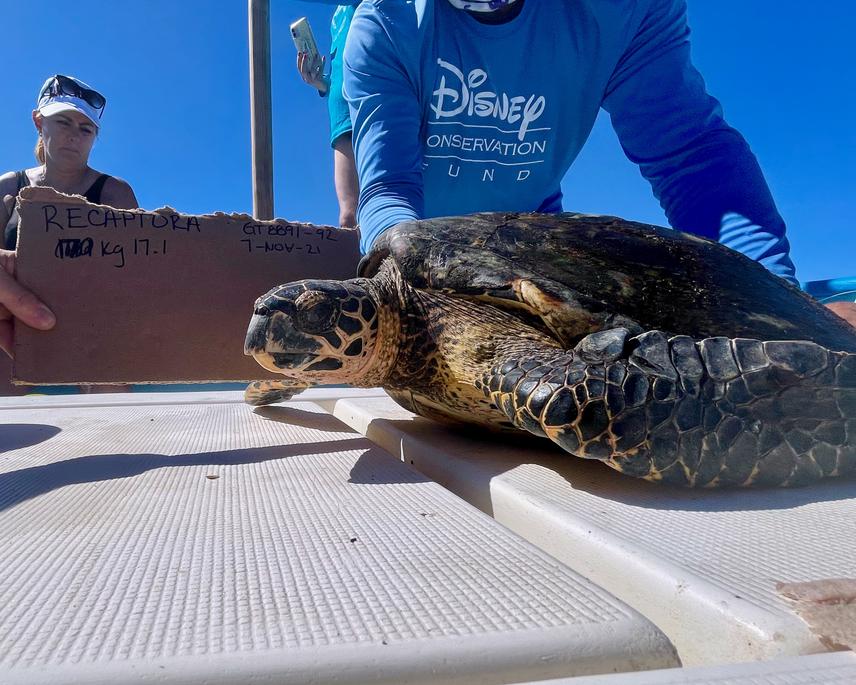Stephanie J. Rousso
Other projects
15 Jul 2013
Building Capacity for a Community-Based Marine Turtle Tourism Conservation Model
16 Feb 2015
Creation of a Model for Conservation Tourism through Community-based Research and Outreach
The incidental capture of marine turtles in fishing gear, termed ‘bycatch’, is considered the main threat to conservation. In the Eastern Pacific, five species of marine turtles are affected by fishing activities that keep them on the International Union Conservation Network (IUCN) Red list. Developing countries such as Mexico have few resources to train law enforcement on international laws, much less enforce contingencies. This project aims to incentivize coastal fishing communities in active sea turtle conservation by building a grassroots blue economy through eco-travel opportunities and responsibly caught seafood markets.

Currently, our successful citizen science program, “Sea Turtle Spotter'' engages marine enthusiasts to report critical spatial observations of sea turtles at sea. This project allows us to expand the citizen science approach with fishermen who report sea turtle bycatch data and inform us of sea turtle poaching. This complements our region-wide effort to engage the public in scientific-driven conservation initiatives at the community level.
Our scientific team will analyse the data to determine “hotspots” correlated with environmental variables using ArcGIS. Our interdisciplinary and international stakeholder group will review the analysis to determine the best fishing practices to reduce bycatch. Furthermore, we will conduct a cost-benefit analysis of bycatch reduction to effectively calculate an economic value of a live turtle over the value of a turtle on the black market. Given the dynamics and complexity of bycatch research, collaborations include Upwell Turtles, the Mexican Polytechnic Centers for Marine Science (CICIMAR, Spanish acronym), Integrated Sustainable Development (CIIDIR, Spanish acronym), and Grupo Tortuguero de Las Californias (GTC).
Our analysis will culminate into a set of scientifically derived criteria and best fishing practices, that when voluntarily followed by artisanal fishers, can help identify certain seafood products as “Turtle-safe” or “responsibly-caught”. Outreach and marketing will align positive action and include sea turtle expeditions and ocean bluemind travel. Fishers, as part of the research team, will guide scientists to determine a community-led fisheries management area that not only protects sea turtles, but also marine resources for the next generation. Diverse and community-based economic opportunities help create a grassroots blue economy.
Additionally, a recognized responsible fisher program will help to sustainably expand and recruit more fishers into the volunteer bycatch reporting and reduction program.